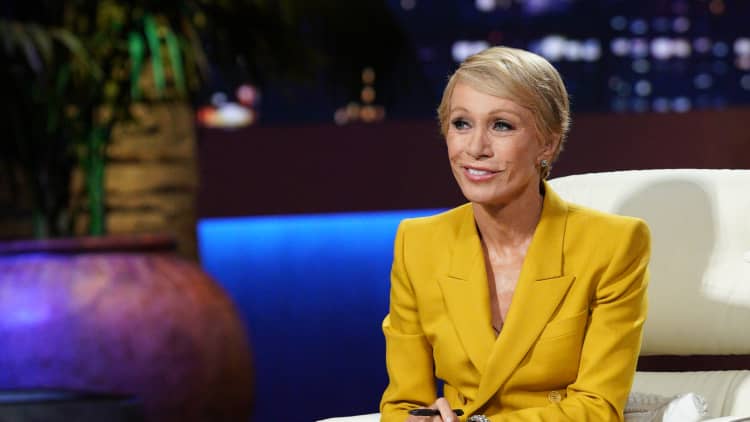[ad_1]
Successful people need to make great decisions under pressure. CEOs across the country are failing at it.
That’s according to Chris Mailander, who coaches CEOs on high-stakes decision-making and is set to publish an upcoming book on the topic in June. From recent collapses of U.S. banks to high-profile corporate fraud, the country’s business leaders are repeatedly making crucial mistakes during crunch time, he says.
Those errors all have something in common, says Mailander: When you’re faced with a make-or-break decision, you need to act quickly instead of leaving the button-push until the last minute.
“There’s a lot of people who get caught off-guard by the time on the clock,” Mailander tells CNBC Make It.
Everyone faces time-sensitive decisions, not just CEOs. You might be on a tight deadline at work, or need to place a last-minute dinner order before the restaurant closes. Your decisions go awry when you allow the pressure of the moment to affect you, says Mailander.
Here are his top four strategies to avoid that fate.
Embrace dissent
Under pressure, it’s easy to go with your gut and ignore counterarguments to save time. Squash that impulse, says Mailander.
“Often times, that dissent gets written off, because it’s difficult, it creates friction, it consumes time, etcetera,” he says. “But often times, that’s the way we can mitigate some of the risk.”
If used correctly, disagreement can be a productive tool, Yale University researchers found in 2016: You’re more likely to find dissent useful when you approach others’ perspectives as valuable information, rather than arguments to defeat.
The next time you find yourself faced with a tough decision, try it out. “Being willing to hear out other perspectives and engage in dialogue that isn’t simply meant to convince the other person you’re right can lead to all sorts of unexpected insights,” Matthew Fisher, one of those researchers, told CNBC Make It in January.
Know your blind spots
Forming a network of devil’s advocates can help you avoid blind spots. Otherwise, you can fall victim to the “fallacy of success,” Mailander says.
Take Silicon Valley Bank, which collapsed in March: Years of sustained growth and success caused its leaders to lose track of the company’s weak points, he says.
Mailander says one of his clients, a startup, uses a quarterly blind spot check-in exercise to avoid that fate. The startup’s executives dedicate time each quarter to ask each other questions like: How do we see more? How do we avoid falling into bad patterns of behavior?
Similarly, you might benefit — in your work or personal life — from regularly taking stock of your own circumstances. Scheduling time to check in on your personal debt status, for example, could help you anticipate a blind spot that could get you into trouble if an economic recession hits.
“If the economy were to shift dramatically, there’s a lot of people who are overleveraged right now on household debt,” Mailander says. “And they could be, within a year or two, in some real dire straits.”
Make the unexpected a part of your routine
Preparing for the unexpected, as you might expect, isn’t easy. It comes down to having “a very conscious process for decision-making,” says Mailander.
In other words, pressure decisions become more manageable when you can break them down into replicable steps. Look at how commanders of nuclear submarines prepare, Mailander says: They have to anticipate future problems, design processes to handle them and practice them until they become routine.
“They prepare for it, they test for it constantly, so that in that moment where there is an enemy sub … there becomes a rhythm to it, and it becomes just part of normal behavior,” Mailander says.
Say you’re on the job hunt, applying to multiple roles at different companies. You might land none of the roles, or only one of them — but you should also prepare for a scenario where several potential employers come back to you with offers, and you only have a few days to choose.
You can preempt that last-minute decision by laying out the pros and cons of each role ahead of time, which can help you prioritize in the moment. Know who in your life you can seek out for trusted advice, and plan to give them a call, too.
Pay attention when the rules change
In times of crisis, normal rules can go out the window. Workplaces suddenly looked very different when Covid arrived, for example.
Most people withdraw when faced with these “trigger points,” says Mailander. “They put their head down to try to withstand whatever pressures come through.”
You’re unlikely to succeed that way, he says. Remote work left people glued to their screen for eight-plus hours per day, conducting virtual meetings as if they were the same as in-person ones. Workers said it destroyed their mental health.
Successful decision-makers see those trigger points as opportunities, Mailander says. Those might include the people who realized that breaking up screen-time and limiting virtual meetings could support their mental health, and make them more productive than they’d been in-person.
“There’s a beautiful dynamic where the rules change in some situations,” says Mailander. “Many people are going to run from it, but there’s opportunities in there.”
DON’T MISS: Want to be smarter and more successful with your money, work & life? Sign up for our new newsletter!
Get CNBC’s free report, 11 Ways to Tell if We’re in a Recession, where Kelly Evans reviews the top indicators that a recession is coming or has already begun.

[ad_2]

